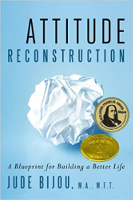
Image by Victoria from Pixabay
Some of our biggest emotional challenges come from family dynamics. It’s a rare situation where everyone in the family gets along. If you tend to be the peacekeeper, you’re usually the one carrying around the heavy emotional burden of the discord. This role also applies to your circle of friends.
If this role is getting old but you can’t seem to stop yourself from meddling in the middle, read about the session below with my client, Thomas. You’ll find practical tools on how to let others handle their own drama, without getting caught in the crossfire, no matter their age or circumstances.
Big-hearted Thomas just wanted the three brothers and their families to get together and celebrate the eldest sibling’s, Carl, big 50th. But there was a problem. Carl and the other brother, David, were barely talking. Carl was upset over David’s wife borrowing money two years ago and never paying it back.
Thomas had recently visited Carl, who was still going on and on about the unpaid loan. Carl wanted Thomas to take his side.
The biggest (and most challenging) thing for mediator Thomas was to not get drawn into the middle. He needed to tell Carl he saw how much pain he was in, but he wasn’t willing to arbitrate in business that was between him and David. He reminded Carl how much the three of them valued their brotherhood, but since he had no idea about both versions of the story, he didn’t feel right about taking sides.
After our session, Thomas coached himself and practiced saying, “I don’t want to talk about it. Please take this up with our brother. I want us to be brothers like we used to be.” He lightly repeated this message over and over to himself like a broken record, until he felt confident that he would not succumb to the pressure to intervene in their issue.
When Thomas felt rooted in the strength and freedom of not getting caught up in the middle and letting people communicate directly, he called Carl and delivered the message that he felt it was best to put off their reunion until he and David had cleared the air. And that he was staying out of this speedbump and that Carl needed to go directly talk with David about the loan.
Thomas wanted to tell Carl it would be better if he held positive thoughts about David and his wife for his own sanity. As the counselor, I stepped in and told him that was a dicey proposition. Giving unsolicited advice is never a good idea. If Thomas wanted to offer his perspective, he needed to first ask and RECEIVE permission before tendering advice.
Then he called David, and made the same communication to him, saying whatever was between the two of them needed to be resolved by them. He was going to stay on the sidelines of this impasse. Thomas told him that he wished they would just work it out so they could be the family they’ve always been.
It took a while, but Carl finally reached out to David. In talking and listening to each one’s understanding about the loan, it became apparent to both that they hadn’t gotten clear about the money and the terms.
After taking the time to really hear each other’s assumptions and conclusions, they were both relieved. They both felt lighter. At that point they came up with a clear agreement they could all live with. Both confessed how much they had missed hanging out with each other and their families. They were eager to keep the channels of communication open going forward and make plans to get together for the belated celebration.
Five Concepts Gleaned In This Example
1. Stay out of the middle.
Regardless of age, stay out of the middle and encourage family members to talk directly with those that they have the issue with. This of course, applies to your circle of friends. You need to let their plight go. It’s not yours. You’ll just be fueling side-taking accusations and muddy the waters even more. They need to learn how to speak what’s on their minds in a constructive manner.
2. Don’t take sides.
Your job is to focus on enjoying each person individually and not get sucked into a discussion where you are expected to take sides. Just offer encouragement for them to “go direct” and praise them for their efforts and successes.
3. Don’t give unsolicited advice.
Giving unsolicited advice is a slippery slope without checking and double-checking to see if the recipient is sincerely open to hearing your opinion. Your job in the midst of family upheaval is to take care of yourself and relish a new authentic role of cheerleader rather than that of the perpetual peacemaker.
4. How to resolve conflicts.
Here is the short version of how to resolve differences or conflicts. First nail down the specific topic under discussion. Then all the participants talk about what’s true for them about the issue at hand, while the others just listen. No refuting or offering a comment, just listen, back and forth, until everyone truly feels understood. Then from this stance, together find the best win-win solution.
5. Stay Specific.
And lastly, this dynamic is a reminder to “stay specific,” something they didn’t do at the time Carl loaned David’s wife the money. If you articulate the parameters about the topic under discussion, then all concerned can stay laser focused on getting clear about that issue. Staying specific is the way to stay out of dangerous waters that are created by bringing in other unresolved issues, overgeneralizations, or the implications for the future into the topic at hand.
©2024 by Jude Bijou, M.A., M.F.T.
All Rights Reserved.
Book by this Author: Attitude Reconstruction
Attitude Reconstruction: A Blueprint for Building a Better Life
by Jude Bijou, M.A., M.F.T.
 With practical tools and real-life examples, this book can help you stop settling for sadness, anger, and fear, and infuse your life with joy, love, and peace. Jude Bijou's comprehensive blueprint will teach you to: ? cope with family members' unsolicited advice, cure indecision with your intuition, deal with fear by expressing it physically, create closeness by truly talking and listening, improve your social life, increase staff morale in just five minutes a day, handle sarcasm by visualizing it flying by, carve out more time for yourself by clarifying your priorities, ask for a raise and get it, stop fighting via two easy steps, cure kids' tantrums constructively. You can integrate Attitude Reconstruction into your daily routine, regardless of your spiritual path, cultural background, age, or education.
With practical tools and real-life examples, this book can help you stop settling for sadness, anger, and fear, and infuse your life with joy, love, and peace. Jude Bijou's comprehensive blueprint will teach you to: ? cope with family members' unsolicited advice, cure indecision with your intuition, deal with fear by expressing it physically, create closeness by truly talking and listening, improve your social life, increase staff morale in just five minutes a day, handle sarcasm by visualizing it flying by, carve out more time for yourself by clarifying your priorities, ask for a raise and get it, stop fighting via two easy steps, cure kids' tantrums constructively. You can integrate Attitude Reconstruction into your daily routine, regardless of your spiritual path, cultural background, age, or education.
For more info and/or to order this book, click here. Also available as a Kindle edition.
About the Author

Jude Bijou is a licensed marriage and family therapist (MFT), an educator in Santa Barbara, California and the author of Attitude Reconstruction: A Blueprint for Building a Better Life.
In 1982, Jude launched a private psychotherapy practice and started working with individuals, couples, and groups. She also began teaching communication courses through Santa Barbara City College Adult Education.
Visit her website at AttitudeReconstruction.com/




























